The anarchic experimental schools of the 1970s
- Published
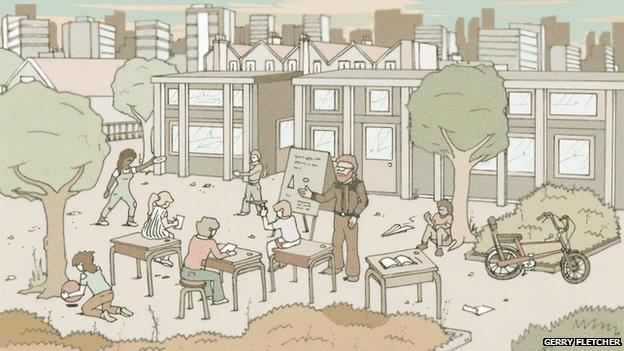
In the 1970s, idealistic young activists created a wave of experimental schools - no compulsory lessons, no timetables, no rules. So what happened to the kids who attended these free-for-alls?
You wait an age for the green man to let you cross Liverpool's Scotland Road.
It goes back to 1971. The Queen opened the Kingsway Tunnel linking Liverpool with Wallasey on the other side of the Mersey. The project redrew the geography of Liverpool, turning the Scotland Road into an urban motorway with two sides of bone-shaking traffic.
The area's dilapidated tenements were knocked down and the residents moved out. The development severely disrupted the "Scottie Road" - a poor but once vibrant area standing between the city centre and the docks.
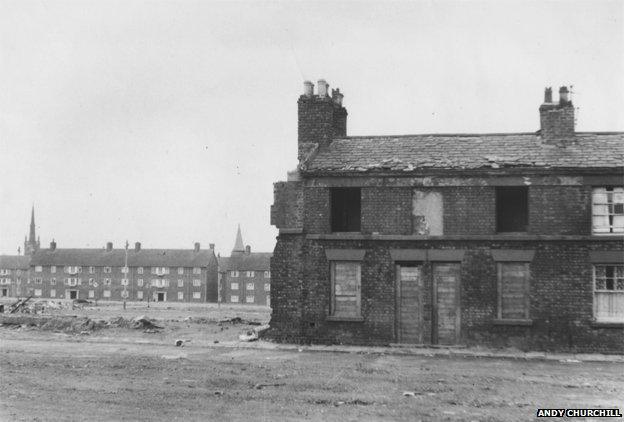
Scotland Road, Liverpool in the early 1970s
Against this backdrop, local teachers John Ord and Bill Murphy began an experiment.
Their new school would have "no headmaster, nor hierarchy nor recognise any central authority, but be controlled by the parents, children and teachers together", the Times Educational Supplement reported in December 1970.
It registered with the Department for Education, ticking the same box - "Education Otherwise" - as home schoolers. It would be subject to regular inspections.
A building was found and an office set up above a shop. The school grew quickly to 20, and then 30 children. Teachers, always known as "helpers", worked unpaid.
There were trade unionists, parents, community activists. It became a destination for idealistic university students. The school had to move frequently to find affordable spaces big enough for the growing numbers.
A BBC film from those early days shows Ord, with long hair, talking intensely. "This school is essentially working class," he says in the film. "It's not a middle-class school and doesn't try to push any middle-class values on to the kids."
John Ord discusses the issue of freedom at Scotland Road school
Murphy, heavily sideburned, espouses a hippyish vibe. Children, he says, "have had stolen from them the right to dig, to build, to experience, to see". The free school will put them back in touch with nature, he says.
Today we associate free schools with the former education secretary, Michael Gove. Parents can set up new schools if they're able to show that the state is not providing proper choice in their local area.
It has been the subject of much debate - an empowering or destructive innovation, depending on your point of view. The schools are free from council control, funded directly from Whitehall and outside the national curriculum. But they are not Britain's first free schools.
The London Free School in Notting Hill opened in 1966. Soon they were cropping up all over the country - Bristol, Birmingham, Glasgow, Manchester, Leeds, Nottingham, and Brighton all got one. Liverpool had two, London at least four.
To modern ears they sound like nothing short of anarchy.
There would be no timetable, no compulsory lessons, no uniform, no hierarchy. Teachers would be called by their first names. The children would make up the rules and decide what they wanted to learn.
There'd be no fees, fixed hours, term times or holidays. They were to be schools without walls - and open whenever the community wanted them.
Many of them quickly folded - with some communities not receptive to the idea of educational anarchy. But a few put down solid roots.
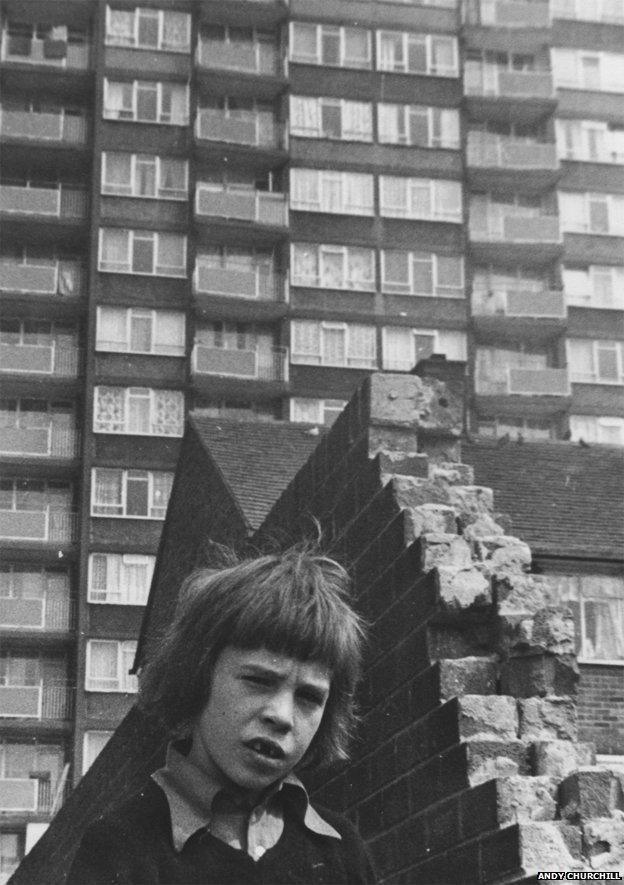
A pupil from Scotland Road school: There were no fees, fixed hours, term times or holidays
A day in 1971. Twelve year-old Maureen Breen sat on the school steps, dark hair falling over her eyes. She was excited. It was her first day at the new Scotland Road Free School. She was one of the first half dozen to enrol. Her parents - a postman and a cleaner - could in no way be described as hippies. And yet they too had been persuaded.
The masterminds behind the free school - Ord and Murphy - taught Maureen at St Catherine's, her Catholic secondary. But they had turned against the rote learning and corporal punishment of many conventional schools of the time.
Meanwhile down in the London borough of Islington - unrecognisable from today's slew of delicatessens and restaurants - another free school was becoming established. The White Lion Street Free School was a stone's throw from Angel Tube station. The area looked like a slum, recalls one of the early attendees, Martin Christie.
Housed in a five-storey building, the school's facade was multicoloured and the foyer guarded by a life-size papier mache lion. Step inside and what hit you first was the smell of "hippy food" - pulses and stews - Christie says. Then there was the noise. "Effing and blinding" was de rigueur among the children, who decided they were to be called "kids" rather than pupils.
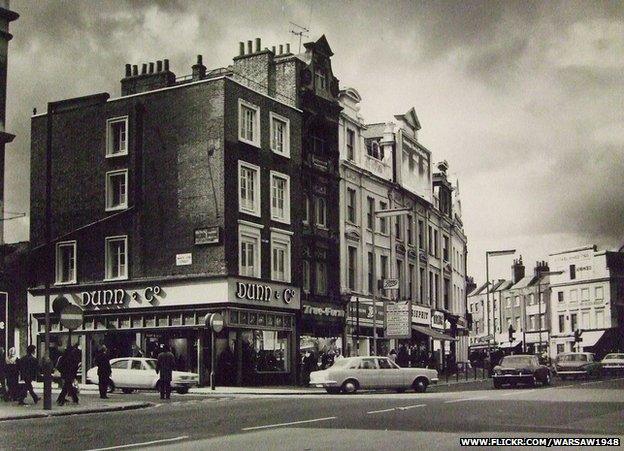
The corner of White Lion Street, Islington, 1972
The teachers, known as "workers", used to laugh at Martin for his avoidance of four-letter words, he recalls. An English class would be brought to a sudden halt with a crash of a door being knocked off its hinges.
The "worker" would get up and manhandle the rabble out of the room before the lesson could continue. Some people wanted to learn. Others spent hours jumping on to old mattresses, smoking or simply wandering the building.
Dean Vella, who'd arrived there having been expelled from his previous seven schools, was surprised to find he wasn't being caned.
"Before that at school, four days out of five I got six of the best. You could choose hand or arse, slipper or cane. I'd take cane on hand even though it hurt more."
But at White Lion, no-one caned him. One of the teachers, Anthea, put him in charge of the keys to the safe and the classrooms. You could learn if you wanted. But no-one drummed it into you, he says. He'd never known anything like it. "It manned me up. I'd been into a lot of naughty stuff."
He remembers Nigel, one of the workers, letting him drive his car on the roads. Dean was 14 and the teacher looked on in quiet terror. "You learned by doing," Vella says. Even if it was sometimes against the law.
If anything Scotland Road was even more radical. No-one can remember doing any lessons at all. They learned in other ways. There was a helper, Michael Griffies, who would teach them how to change a car battery and how to drive.
The children went on trips to a cottage in Wales. The children had to get the water from a pump at the top of the hill. They'd milk the cows and ride horses, build tree houses and bake cakes. History meant visiting Welsh castles. And when workers at the JCB factory at Kirkby went on strike, the pupils joined them for a sit-in.
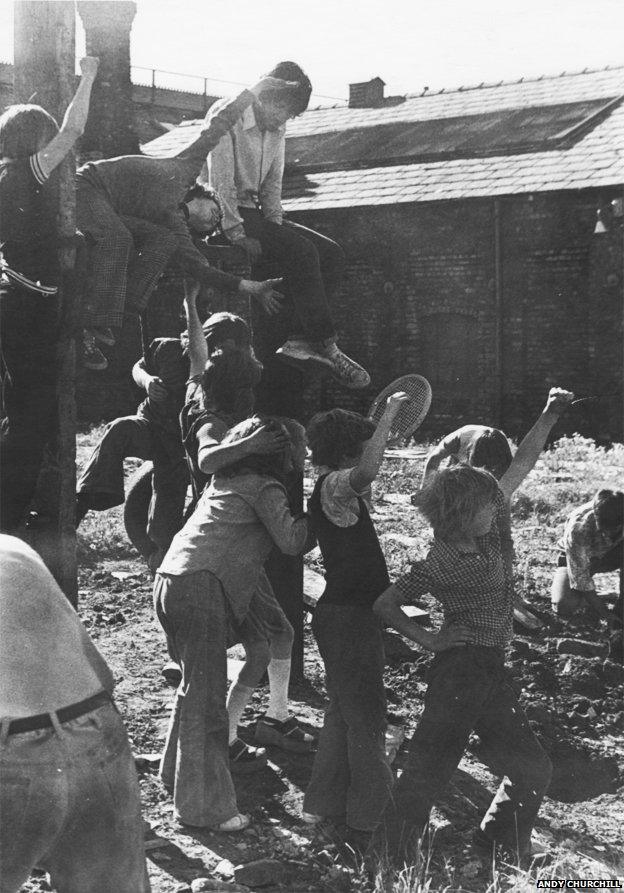
Scotland Road pupils at play: "You learned by doing," recalls one pupil
But the free ideology espoused by the adults was occasionally shot down by the children, such as the time when the girls demanded a uniform. Their "bourgeois" wish was granted, even when they asked for checked lambswool miniskirts from a particular boutique in Liverpool. The request for matching coats was politely declined.
So what has become of those free school guinea pigs? Maureen Breen is now Maria Catterall. She is married with three children and lives in a neat terraced house in Wavertree, an area of Liverpool now known for its student population. She works as a team secretary for community mental health at an NHS psychiatric unit. Her husband drives tankers. Her three sons work in good jobs. No-one would guess that she was part of one of the most radical educational experiments in modern Britain.
"We used to go in and they'd say 'what d'yous want to do today?'" Her eyes twinkle with childhood mischief. "They'd give us a choice and we'd never ever pick lessons. We used to go to the zoo or the pictures or the ice rink. Or go to the countryside."
Her abiding memory is of children piling into the big box van with no seatbelts and driving to opposite ends of the country - Cornwall, Wales or Scotland. At 14 she became bored and went to help run another free school in London - the Bermondsey Lamp Post.
There were encounters with actors and film people - she remembers walking down the red carpet at a James Bond premiere. Her parents never worried. The teachers were trusted implicitly.
After free school, at 16, Catterall went into catering - those huge pans of soup she used to make at school had given her an excellent crash course.
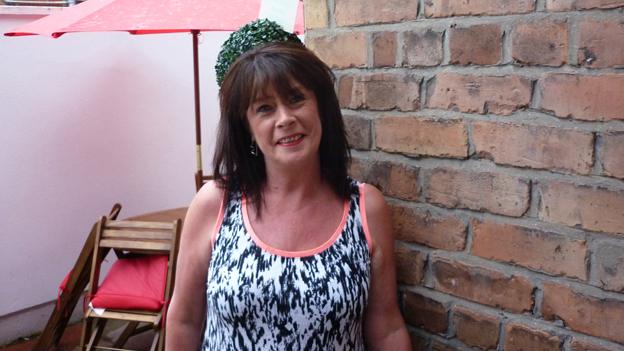
Maria Catterall - formerly known as Maureen Breen - in 2014
But when she tired of catering she was in for a shock. She had no qualifications. No exam results. None of the pieces of paper that help people get on. So she had to go back to college to get certificates in maths and English.
The lack of exams is a regret. She remembers Ord one day trying to talk her into doing some classes to prepare her for an exam but she refused. There didn't seem any point.
Former pupil Brian Keating used to take apart car engines with Michael Griffies at Scotland Road. He also enjoyed travelling around universities spreading the word about the school. There he encountered middle-class students, exotically dressed with long hair and wearing afghan coats. "We could talk to anyone without feeling inferior," he recalls.
When Keating left school he went off to sea, working as a waiter on the ferries. Later he ended up driving forklifts, and then became a blacksmith. Kids did pick up practical skills at the school. He remembers how another child was helped by the school to get their HGV licence and become a lorry driver.
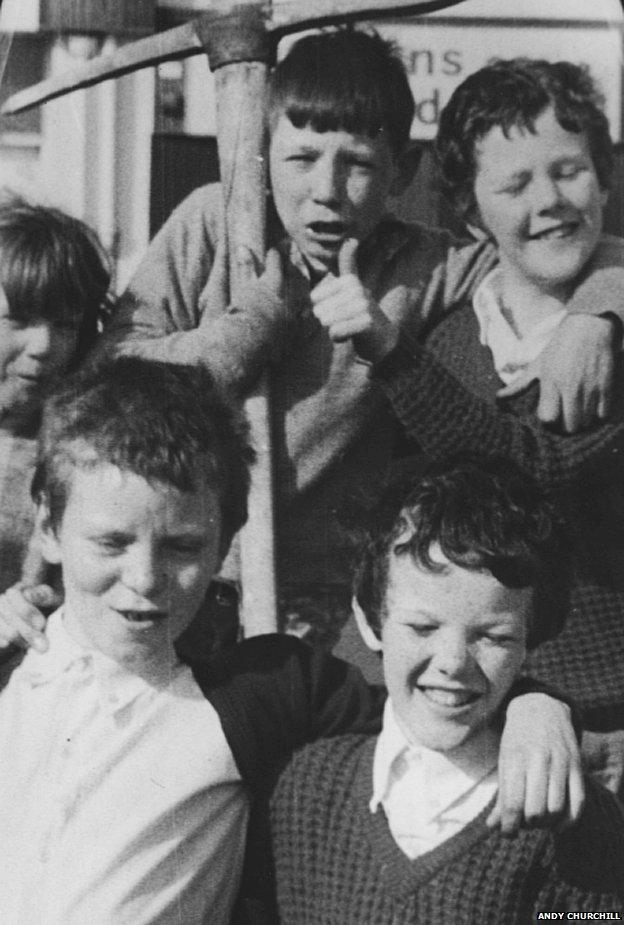
Kids from Scotland Road pose for the camera
Nearly every former pupil has recollections of Alfie White. On a school trip to the Isle of Arran, White opted to stay behind working as a gamekeeper. He stayed there for three months. Today he is said to live a few streets from Scotland Road, running a tiling business.
Down in London, Martin Christie never liked admitting he went to the White Lion. The words "free school" to him sounded like something for drop-outs.
He was relieved when his family moved to Watford. But he was nervous - how far behind would he be academically? His fears were unfounded - he found himself in the middle of the class, getting decent marks in tests. "I think I learned more at the free school," he says now. Today he is a self-employed installer of burglar alarms, with a seven-year old daughter.
White Lion's real gift to him was the guitar. His maths teacher - Christie recalls him only as "Bob something or other who wore John Lennon glasses and always had a roll-up [cigarette] in his hand" - played in a band. He made it his mission to teach Martin the electric guitar.
Christie was good. When he started in Watford, he was asked to join George Michael's band - they went to the school round the corner. He turned them down. "I could have been the Andrew Ridgeley," he laughs.
Instead he worked in a telephone company, dressed as a mod, enjoyed local celebrity with a couple of bands that never quite made it. But the music helped him to grow up. Until he played in a band he'd always been shy and uncomfortable in public.
A trawl of free school alumni won't turn up many brain surgeons or barristers. Why? They didn't do exams. It's a regret of John Ord's. The intention at the start was to equip them with qualifications but he never managed to convince the children it was worth it - and free schools never compelled the children to do things they didn't want.
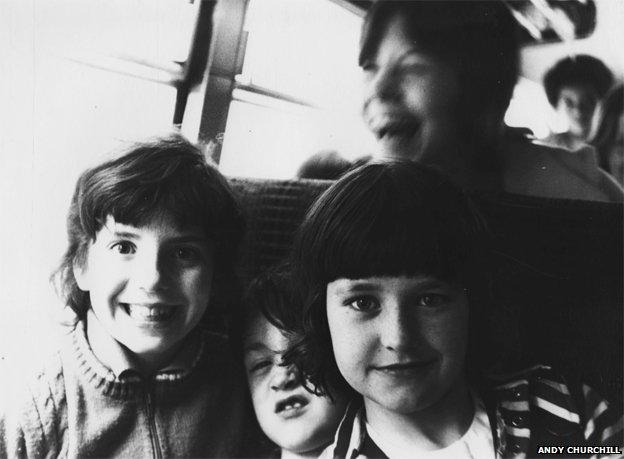
School trips from Scotland Road could range as far away as Cornwall, Scotland and Wales
Many alumni say they learned life skills they couldn't have got elsewhere, particularly how to get on with people however different they seemed. Jenny Aster, a graduate of the White Lion is now a student counsellor at City University in London.
Dean Vella, who regarded the cane as part of the school day, is now a painter and decorator living in Mullingar in Ireland, married with three children. He believes he might have ended up in prison without the free school. He even invited Anthea, who trusted him with the school keys, to his wedding.
Mary Miello, who went to Scotland Road, was on probation for a time. She's also worked as a cleaner and is now a full-time carer for her mother. She talks fondly of the free school and says without such personal attention from the teachers she might have got into serious trouble.
Kids at Scotland Road talk about their school life
Ord, now a Labour councillor in Oxfordshire, says they felt there was nothing they couldn't try. Not all of it worked, such as the idea to keep chickens in a garage. Some of it has lasted though. Murphy's community transport scheme that began by acquiring vans for school trips is still going, offering cheap transport to people on low incomes, the elderly and disabled.
The lack of lessons was attacked by critics, but Ord says they succeeded in getting children to turn up every morning. Kids who would have played truant otherwise. "We had a go," he says proudly. "We got on and did it with nil resources."
There was no formal funding and they charged no fees. They relied on donations and freebies. All the full-time staff were on benefits. Tom Weld, one of the helpers would collect free fruit and vegetables from the market for the school dinners.
One day, Ord says, Paul McCartney phoned up the school in Scotland Road. Wings were doing a gig in Liverpool. "Would you like to bring some of the kids? Oh and bring a bucket - I'll make an announcement and you can do a collection."
It was a similar story in Islington. The children would open the post and hand over the cheques to the adults to pay in.

Free schools in the 21st Century

Set up in England by groups of parents, teachers, charities, businesses, universities, trusts, religious or voluntary groups, but funded directly by central government
Established as academies, independent of local authorities and with increased control over their curriculum, teachers' pay and conditions, and the length of school terms and days.
Established by then-education secretary Michael Gove (pictured) in Academies Act 2010
To set up a free school, applicants must present business case, involving details about parental demand, type of education to be provided, and ethos, capacity and capability of applicants themselves
Can't be run for profit, or be academically selective, and they are subject to Ofsted inspection
Funding for free schools worked out on per-pupil basis; as of September 2014 there are currently about 300 free schools in England

But this ad hoc, unfunded approach couldn't really last. Scotland Road struggled with more and more pupils - many of them serial truants - arriving. They had a policy of not turning people away. At the same time, the Job Centre staff twigged and stopped the dole money going to Ord and his colleagues. Suddenly they had no "wages".
Ord and his partner had just had a baby. "We had no money whatsoever. I eventually went and worked in a car factory." Later he would achieve prominence in Liverpool as one of those Labour councillors - known as Militant - who pushed through a rule-breaking budget.
The White Lion school carried on alone. Stories regularly appeared in the paper from the late 1970s onwards about the school being on the brink of closure. Somehow it fought on.
In 1982 it agreed to accept funding from the Inner London Education Authority (Ilea). Part of its freedom had been traded in exchange for financial security. In effect it became a sink school for truants, says Lisa Murphy, an academic at South Bank University who is researching free schools for her PhD.
When Ilea handed over responsibility for schools to individual London boroughs in 1990, Islington stopped its funding - blaming the school's refusal to follow the national curriculum. It was the end of a very unusual educational experiment.
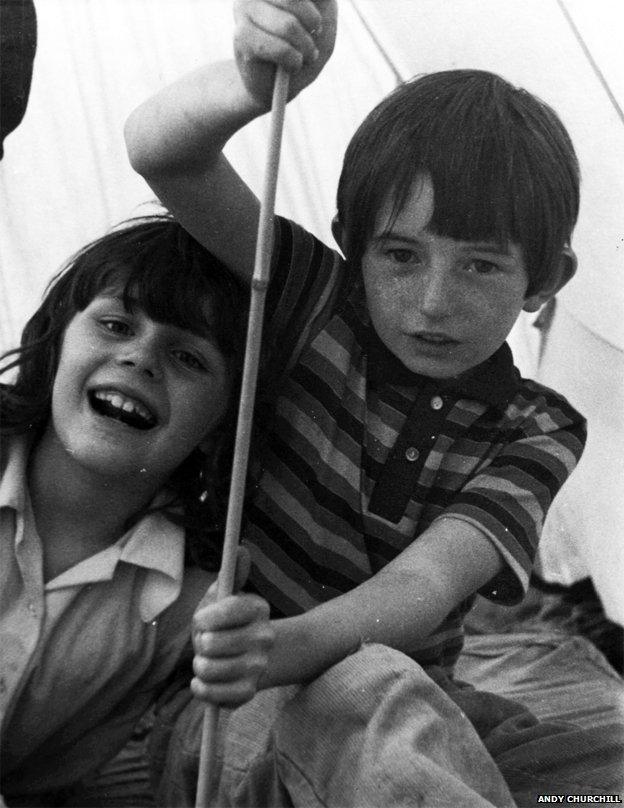
Was allowing free school pupils to opt out, a "dereliction of duty" or ahead of its time?
Ord says that while the original free schools ran out of money, they were ahead of their time. "We weren't trying to overthrow the system. We were challenging it. Now look at school councils, mixed curricula, community schools" - all commonplace today, he says.
But for former chief inspector of schools Chris Woodhead, free schools were a fiasco. To allow children to "opt out" was a "dereliction of duty". Children who struggle with education need rules and boundaries more than anyone, he believes. "My memory of them is they were a disaster. They deliberately chose to reject traditional education. The children didn't learn anything and the parents got increasingly frustrated."
Michael Young, who founded the Consumers' Association and Which? magazine, was a patron of the White Lion. His son, journalist Toby Young, has been a pioneer of the modern free schools - setting up a notable example in west London in 2011. Michael Young had sent his children to progressive schools. Toby had gone to Creighton, one of the most experimental comprehensives in the country. It was an experience he loathed. He left before his GCSE year and only achieved a grade C in English literature when he came to sit them.
Toby Young thinks the kind of progressive education practised by the likes of White Lion was deeply flawed. But they did plough a lonely furrow for today's free schools, albeit from a totally different ideological perspective. "There should be a space within the public education system for a degree of experimentation." And parents who don't want to send their children to the local state school should have an opportunity to set up their own school, he argues.
But there was support in the 1970s for free schools from unlikely sources. David (now Lord) Alton, then a Liberal councillor, was impressed. He believed Liverpool schools were failing working class kids - some of them more interested in caning the pupils into submission than stimulating their minds.

Educational free thinkers
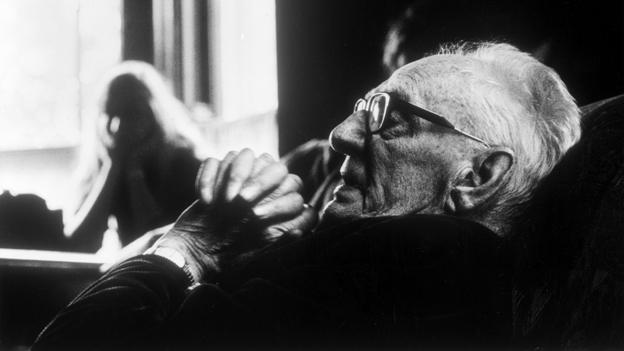
Rudolf Steiner (1861-1925): Austrian-born thinker with controversial ideas on wide range of subjects including homeopathy, agriculture, philosophy and education, who gave his name to Steiner-Waldorf schools, "designed to work in harmony with the different phases of the child's development"
Maria Montessori (1870-1952): Italian doctor and influential educationalist who put great value in developing children's independence - in Montessori schools, children work largely on their own with special equipment designed to develop their sensory, numeric, language and practical skills
AS Neill (1883-1973): Scottish educator (pictured) and founder of Summerhill School - a boarding establishment run as a democratic community; according to Neill's philosophy, members are free to do as they please, so long as their actions do not cause any harm to others - this extends to freedom for pupils to choose whether or not they attend lessons

"I rather admired the young teachers who set it up," Alton, now a crossbench peer, recalls. "It was a challenge to authority but they had the interest of the children at heart." He thinks the experiment forced the city's local education authority to re-examine what it was doing. "These were good teachers and the children wanted to be there."
Mainstream education was different in the 1970s. The school leaving age was only extended to 16 in 1972. At this point 14% of 18-year-olds were in higher education, compared with more than 36% today. Children in poor areas were "undersold for generations", says Sir John Dunford, former general secretary of the Association of School and College Leaders.
Today it's "absolutely not acceptable" for a school to let children leave without any exam results. Now there's an expectation that the best schools can get good results even in deprived areas. Schools like White Lion would need to offer a full curriculum, including sport and the arts. And what would the inspectors make of an establishment like Scotland Road with no lessons? "In this day and age they'd say no to free schools like that."
One of the original free schools has survived to the present day - but only by becoming unfree. Situated in Balsall Heath, Birmingham, it is today known as St Paul's. Dr Dick Atkinson, who helped set it up, says they rapidly changed tack, having planned something similar to White Lion and Scotland Road. "We did think, can the rules be very flexible and in some cases non-existent? But we quickly discovered that difficult youngsters had come unstuck because there hadn't been rules around them."
Anita Halliday - who took over in 1973 - is still at the helm. She remembers in the early days "all sorts of radical ideas in the melting pot". But they soon stopped consulting the children what they wanted to do each day. A timetable was devised, a curriculum followed and a hierarchy enforced. Today it receives money from the public purse and is expected to take in "challenging young people". It has survived and succeeded. But it only briefly followed the libertarian ethos that characterised 70s free schools.
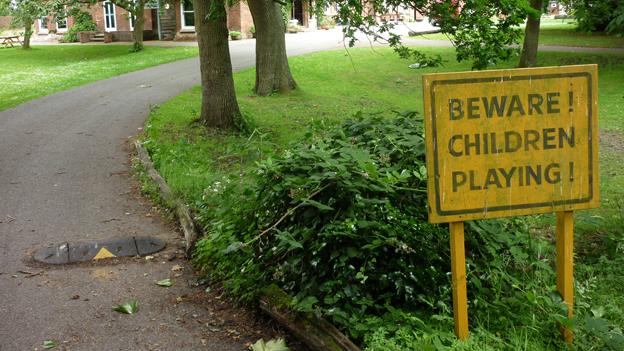
Summerhill has a sign that emphasises the value of play
New school buildings have sprung up not far from Scotland Road. Everton Free School, sponsored by the area's football club, has moved in to a £4.2m building near Goodison Park. It is the kind of money for facilities that Ord and Murphy could never have dreamed of.
This new free school will have no anarchy. They'll manage bad behaviour in the modern way. The school leadership talk of a therapeutic environment, behavioural management and trigger points. It is all a far cry from Ord having to sleep in the Scotland Road school to try to prevent people burning it down. Or huddling around the kitchen in winter to keep warm.
The Everton Free School has access to the football club's training facilities at Finch Farm and visits from players to boost morale. Children get intensive, tailored support to get their education back on track. It is free from the local authority and the national curriculum.
There is really just one genuine free school left. Summerhill is a boarding school in Suffolk that inspired Ord to set up Scotland Road. Set amid woodland, a visitor walking up the winding drive is met by a faded yellow sign announcing "Beware! Children Playing!" At the handsome Victorian manor house that is the school's HQ, play rules supreme.
Founded by AS Neill in the 1920s it is now run by his 67-year-old daughter Zoe Readhead. There are tree houses and skate jumps wherever you look. And a noisy game of sardines disturbs the peace.
Readhead is horrified at how the term "free school" has been "hijacked" by the government. Free school to her means children free to decide their futures. The children are encouraged to play to their hearts' content - lessons are optional.

Children at Summerhill School
Summerhill has survived because it has a niche as the only boarding school of its type in the world. Its fees give it the cash to keep going - or just about, she says. Boarding fees start at £3,148 per term for seven-year-olds rising to £5,472 for 13-year-olds. Day fees are roughly 60% of this.
She thinks the 1970s free schools probably "confused freedom with licence". People often assume Summerhill is about anarchy, she sighs. But it has a law book setting out rules voted for by the children. It covers everything from nude swimming to queue jumping and internet porn - which is apparently allowed for the older children.
Summerhill does turn out pupils who become doctors and entrepreneurs. They leave with exam results, something that the 1970s free schools never managed. Ofsted says that in 2013 Summerhill's results were in the top 20% of schools in England.
None of the Scotland Road kids went on to become millionaires, but would they have done any better at "normal" school? There's a sense that those who are happy to talk about their experiences necessarily are those with the fondest memories. Generally, there's a mixture of emotions from gratitude to have experienced something so unusual, tempered by an acknowledgment that the schools were often far too chaotic.

More from the Magazine

We should not expect education to be simply left to teachers, or the state, argues the philosopher Roger Scruton.
A Point of View: The case for not leaving education to the teachers (7 March 2014)

Martin Christie never did play guitar for Wham. But he hasn't had a bad life, he reckons. Not long ago he went back to White Lion Street and found himself plunged back into the 1970s. "The past is what makes your character. It's not something you can let go of."
When people ask Maria Catterall where she went to school, she finds it easier not to explain. Many people would struggle to understand how one particular anecdote from her free school days came to pass.
Catterall recalls 40 years ago gathering in the centre of Liverpool with a group of children from the free school, all holding a tomato. When you see him, lob it, the teacher told them. The venerable man they were waiting for appeared and the children duly let fly.
But the target was not just anyone. It was Edward Heath, the British prime minister. The children have been ordered by their teacher to bombard - albeit with tomatoes - the elected leader of the country.
It's hard to imagine a time when teachers would take schoolchildren on a trip to heckle the prime minister - let alone throw things at him. Breen laughs at the absurdity.
"It was just another adventure for me. It was a day out. It's not till I got older that I realised what it was about."
Update, 23 October: Since the publication of this article we have learned of the death of one of the interviewees, Lisa Murphy.
Subscribe to the BBC News Magazine's email newsletter to get articles sent to your inbox.